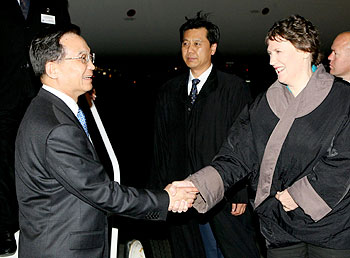– John Edmundson
The New Zealand-China Free Trade Agreement (FTA) signed on April 7 is the first free trade agreement China has made with any developed Western country. It is an historic deal for the Chinese government in its push to be fully accepted into the capitalist club.
The deal is historic for New Zealand too, for the simple reason that China’s economy is by far the largest that New Zealand has ever signed such an agreement with. With a growing middle class already numbering over 100 million, China offers a huge market for New Zealand businesses, particularly for luxury goods and services.
Reaction to the FTA has been mixed. Opponents of the agreement have ranged from the Green Party on the left, to New Zealand First on the xenophobic right. The CTU, eager to cosy up to Labour in the lead-up to an election that Labour is uncertain of winning, has come out in support of the agreement.
The critics of the FTA have claimed that the agreement in some way condones the poor human rights record of the Chinese government. This objection has become more strident with the recent Chinese crackdown on Tibetan protests.
The New Zealand government and the FTA’s supporters have countered with the point that New Zealand trades with all sorts of countries with all sorts of human rights records. In fact, government-led boycotts of countries over “human rights abuses” have a dubious record, with the independence of small, weak countries often being threatened by countries in the imperialist world on spurious grounds.

